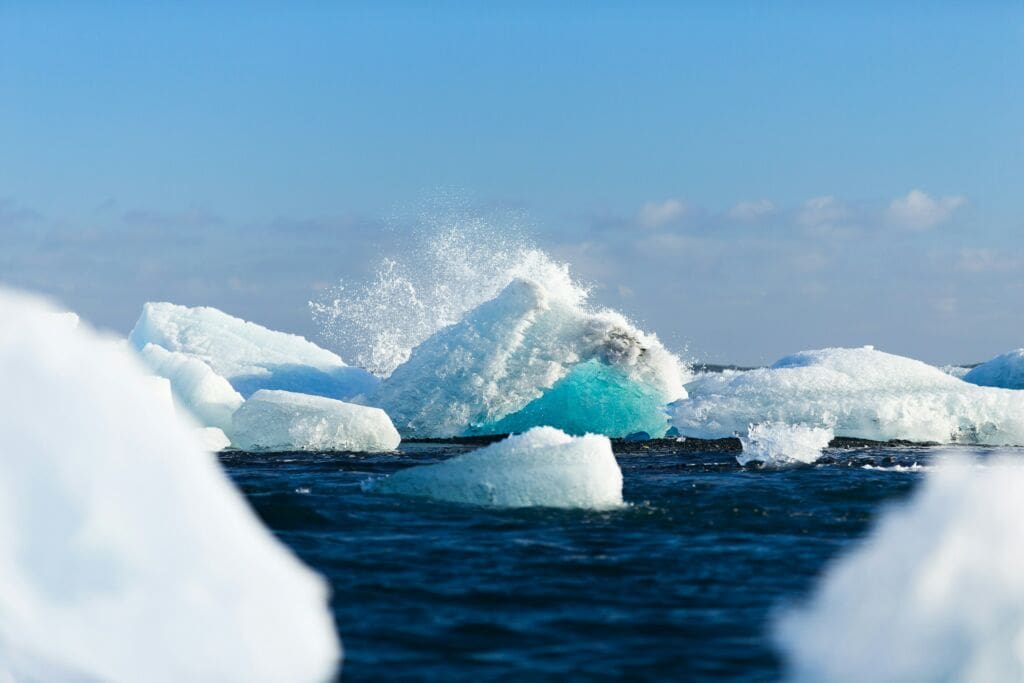Earth Hour 2024: Everything You Need To Know About The Climate Crisis

Table of Contents
What is Earth Hour?
According to our recent research, 61% of people believe climate change is the biggest threat to civilisation. That, alongside the fact our planet is the hottest it has ever been, is why initiatives such as Earth Hour are crucial to the future of our planet.
On Saturday 23rd March 2024, between the hours of 20:30 and 21:30 (GMT), it is officially Earth Hour, and it’s when people across the globe are encouraged to spend one hour of time doing something positive for our planet. In the past, this movement has been famous for turning all lights off for the hour, and this year iconic landmarks such as the Empire State will be undergoing a dark hour.
Earth Hour is one of the largest grassroots environmental movements founded in Sydney in 2007 by the World Wide Fund for Nature (WWF). The lights-out hour has been famous since then, however, the condition of our planet has drastically depleted as our planet continues to get hotter.
Why is it important?

Here at Green Building Renewables, we’re passionate about making change for the better of our planet. The earth is hotter than ever before and is showing no sign of cooling down unless we act fast, and act now.
Here are some of the most alarming consequences of climate change:
- Sea levels rising
Oceans absorb heat, causing the expansion of seawater. Melting ice also exposes land and sea which absorbs more heat. This causes more ice sheets to melt and the sea level to rise, but at what rate? If climate change continues at the rate it’s heading, we could see a possible sea level rise of 4 to 8 ft by 2100.
The ice sheets in the West Antarctic and Greenland are melting rapidly, and this alone could raise the sea level by 10-20 ft each. To visualise this, a 19ft rise would drown Miami, Manhattan and London.
- Insurance prices rising due to extreme weather
As climate change increases the temperature of our planet, this increases the potential for flash floods and heavier rainfall. Flood repair bills can be upward of £4,500, and home insurance premiums will continue to rise as the planet gets hotter.
Research has shown that the average price of home and contents insurance rose to £188 in July 2023, a 27.9pc increase from July 2022, when it stood at £147. Further, the damage caused by storms Ciara, Dennis and Jorge in February 2020 and Dudley, Eunice and Franklin in 2022 cost Britain’s insurance industry over £1bn.
- Food insecurity
Our food security is currently being threatened globally due to changing rain patterns, increased temperatures and more frequent extreme events. Crops have an optimal growth temperature, and for every Celsius increase, their output decreases by 10%.
Sadly due to climate change, there could be a 4 to 5 degree planet increase by 2100, and this would result in 50% more people with 50% less food. This is hugely worrying, as grain accounts for 40% of the human diet and is also used to feed cattle- supplying meat and dairy.
Food insecurity is already a major global issue with an estimated 821 million people currently undernourished, and without dramatic emission reduction, by 2080, Southern Europe will suffer constant extreme drought impacting food production.
In current affairs, the price of Easter Eggs has risen by 50% or more in some cases, and human-caused climate change is the main cause of the price hike. Most global production of cocoa occurs in West Africa, but these trees are highly vulnerable to fluctuations in the climate. There have been severe droughts in the region caused by record-breaking temperatures of 40 degrees, and farmers have reported that this has ruined the crop because high temperatures increased the rate of evaporation. This has left the crops with insufficient moisture, making prices more expensive this Easter.
- Increase in crime
A less obvious impact of climate change is the increase in crime that happens as the Earth gets hotter. Due to extreme weather, food insecurity and increased temperatures, there may be 200 million climate refugees by 2050. The worst-case scenario is 1 billion. This means that people may have to flee to unwelcoming territory, which could lead to political and social tension.
Research has found that an increase of 0.5 degrees results in a 10-20% increase in armed conflict. Further, it has been found that heat increases violent crime rates, with 22,000 more murders predicted by 2100.
- Permafrost thawing
One of the consequences of climate change that goes under the radar is permafrost thawing. There have been multiple occasions across the globe where, due to the ice caps thawing due to the Earth’s temperature rising, pathogens have been released causing viruses that humans have no control over. We will not be able to prevent infections that these pathogens release, as our immune systems aren’t able to fight them off.
5 things you can do every day to help our planet

Partaking in Earth Hour is a great way to make a climate-friendly change to your everyday life. But, we need to make more long-term changes to reverse the human actions that have caused damage to our planet.
Here at Green Building Renewables, we have provided our 5 top planet-friendly switches you can make every day to make sure you are doing your bit for our shared home.
- Recycle correctly
The most recent figures show that the UK recycling rate for waste from households was 44.6% in 2021, up from 44.4% in 2020. Whilst the rates are on an upward trend, we must make sure we are recycling correctly according to guidelines.
- Switch to a reusable water bottle
There are many small changes we can make in our day-to-day lives that can make big changes, such as switching to using a reusable water bottle. By making the switch, you could prevent 156 plastic bottles from ending up in the ocean.
- Take public transport more often
Cars are responsible for 60.6% of transport emissions in the EU. Further to that, the average occupancy rate was only 1.6 people per car in Europe in 2018. Increasing the occupancy rate by car sharing or making the change to taking public transport more often and implementing other initiatives such as cycling and walking can drastically help to reduce emissions.
- Eat less meat and dairy products
Unfortunately, meat and dairy production is responsible for 14.5% of climate-changing gases. This is, shockingly, more than all forms of transport. By making a switch to a less meat and dairy-heavy diet by partaking in initiatives such as meat-free Mondays and Veganuary, you can contribute to lowering those emissions.
- Consider switching to renewable energy sources
One of the most popular environmentally friendly switches is implementing renewable energy sources at your home such as solar panels and heat pumps. Solar panels are a great way to help reduce your energy bills and they give off no emissions that add to greenhouse gases contributing to climate change.
Heat pumps can reduce your home’s carbon footprint by around 60%, as well as getting rid of your gas bill completely. Solar panels and heat pumps are quick and easy to install, so don’t hesitate to get in touch if you are interested in making the switch to heat pumps and solar energy.
Methodology
YouGov audience research conducted in February 2024 on statements agreed with about energy and the environment.
Sea levels rising data collected from Wallace-Wells, D. (2019). The Uninhabitable Earth. Penguin Random House.
Food insecurity data collected from: Battisti, D. S., & Naylor, R. L. (2009). Historical warnings of future food insecurity with unprecedented seasonal heat. Science, 323(5911), 240-244 and Deutsch, C. A., Tewksbury, J. J., Tigchelaar, M., Battisti, D. S., Merrill, S. C., Huey, R. B., & Naylor, R. L. (2018). Increase in crop losses to insect pests in a warming climate. Science, 361(6405), 916-919. RESILIENCE, B. (2017). The State Of Food Security And Nutrition In The World. Rome: Building resilience for peace and food security.




